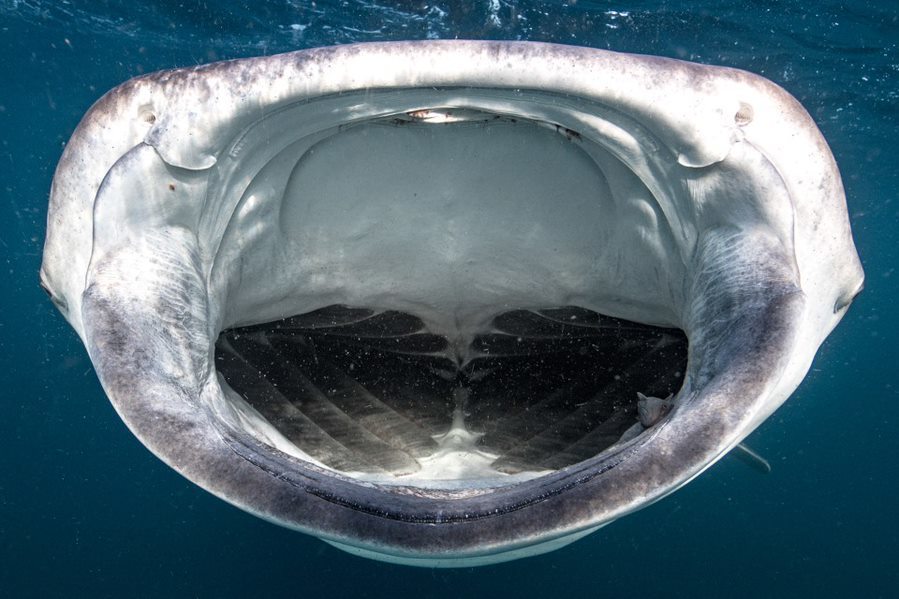The number of whale sharks has decreased in recent decades across the planet, but until now the causes were not clear.
This Monday marine biologists from 50 international institutions publish in the journal
PNAS
the results of a new investigation that points to collisions with large ships that navigate the main commercial maritime routes.
The influence on mortality of these accidents would have been underestimated and, according to scientists, may be the main reason for the decline of the population of this animal.
Since whale sharks (
Rhincodon typus
) spend a lot of time near the surface and gather in coastal regions, experts had advanced the hypothesis that
accidental collisions
with large ships could be causing part of the mortality.
To confirm this, an international team
has tracked the movements of 350 specimens
and large ships around the world to identify risk areas and possible collisions.
"The conclusions that emerge from this article have only been possible thanks to the great collaborative effort to gather all the data available worldwide on the movement of these animals, in addition to the analysis of big data and ingenious statistical evaluations" says the oceanographer Carlos Duarte, one of the lead authors of the study, who is currently doing research at the King Abdullah University of Science and Technology (KAUST), in Saudi Arabia.
DAVID ROBINSON
The team mapped the areas where the sharks were most numerous (
hotspots
) and those that coincided with the world's fleets of cargo ships, oil tankers, cruise ships and fishing vessels (the types of large vessels capable of killing a whale shark in a collision).
The analysis revealed that more than 90% of whale shark movements overlapped with that maritime activity.
threatened giants
The world population of these marine giants has fallen by more than one according to the International Union for Conservation of Nature (IUCN).
The largest fish in the world (they can measure up to 20 meters in length) feeds on small animals called zooplankton and, by regulating these microscopic beings, plays an important role in the food chain and in the health of ocean ecosystems.
A tracker placed on a sharkMARK ERDMANN
The research results underscore the need to monitor collisions, regulate ship speeds and take localized conservation measures to reduce the threat of deadly collisions.
"This is an important contribution less than two months before the United Nations Conference on the Oceans [to be held in Lisbon between June 27 and July 1], which aims to unite the entire world to rebuild marine life , of which these giants of the sea are an important component," says Duarte.
The analysis of recorded incidents and the monitoring of trade routes made it possible to identify the points of greatest risk of collision, which appeared especially in regions next to gulfs.
The study further showed that transmissions from whale sharks tagged by biologists were missed more often on the busiest shipping lanes;
the team concluded that this disappearance is probably due to the whale sharks being hit and sinking to the bottom of the ocean when they died.
Protection measures
So the results suggest that undetected or unrecorded collisions explain the population decline, which has continued despite the international trade and hunting ban laws that have been passed in recent years.
There are currently no international regulations to protect whale sharks from these types of accidents.
In this sense, the research team affirms that the survival of this species is in danger if urgent measures are not taken.
They hope their findings can inform management and protection decisions.
"We need to spend time and energy developing strategies to protect this species from commercial shipping, before it's too late, so that the largest fish on the planet can resist future threats such as changing the oceanic climate", warns the researcher at the University of Southampton, Freya Womersley, one of those responsible for the investigation.
SIMON PIERCE
The authors explain that in some of the detected points, mitigation measures are already underway for other large animals in danger (especially whales) with real-time monitoring initiatives such as Whalesafe or Whalealert.
But they say additional measures are needed, such as separating boats from specimens and reducing boat speeds in some of the identified high-risk areas.
Conforms to The Trust Project criteria
Know more

